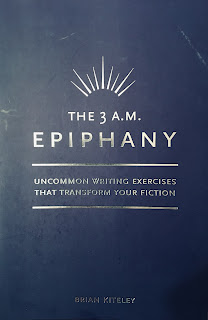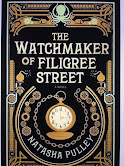Five Writing Prompts and How to Make the Most of Them by Theresa Gauthier
There are myriad tools writers use and reuse to hone their craft, and one of the best you can use to practice, to give your imagination a kick start, is the writing prompt. Anything can be a writing prompt. It can be as simple as a random word from the dictionary or a favorite turn of phrase. In a pinch, I’ve used a favorite line from a song, a poem, or a line of dialogue from a movie.
Room to Write.
A writing prompt doesn’t replace imagination but instead provides a point from which to start, something to provide inspiration, and allow you a place to start when you know you want to write but just don’t know how to begin.
Here are some good prompts to get you started.
1. The random word prompt: Open a dictionary to any page. Close your eyes, and run your finger down the page stopping either on a whim or when you count to a pre-determined number. Whatever word you select, use it. Writing this article, I selected a random word: Rice. If I were to incorporate this word into a short story, I might use it as an ingredient having a person cook themselves some rice or make sushi. I might start a scene in a Chinese restaurant. I might even start a scene about a wedding set at a time when throwing rice at the bride and groom was the done thing. I might even start a story where RICE is an acronym for something.
2. Phrase: My father was fond of saying “to each his own” so I might be inclined to use that phrase as a starting point. Other phrases might be “time heals all wounds” or “any port in a storm”—you can look up cliches on the internet or use a phrase from a favorite speech. These can be used as a theme, as a piece of dialogue or part of the narrative. Writing prompts like these can be a fun way to explore characters. What you write may never see the light of day, but could help you learn more about how your characters think. Try writing a short paragraph for each character in your story. You may surprise yourself with how different these paragraphs turn out to be.
3. Song lyrics or poems: If you have a favorite song or poem, you can choose a line from it and use that to create a short story or film scene. You can even use the same line (or phrase from number 2 above) said by different characters to mean different things. You can use something that holds meaning for you. You can have someone in your story remark about the song or sing the song, or recite the poem or just mention it in passing. You can instead use it as an indication of what will happen within the story like an outline. For instance, a song about a break up can be quoted or it can be used as an outline for your story. Turn the song inside out and see what happens.
5. Prompt books: You’ll find books and journals that embrace the concept of prompts to varying degrees. Some
are journals with words or phrases throughout—sometimes multiple on a page, sometimes a much more complicated layout--which the writer can work through in quick, broad strokes. Some books are more complicated offering a full page of information setting up a situation about which the writer must elaborate. This sort of book (See the titles mentioned above.) will require more thought and more dedication. It would be harder to write from these prompts in broad strokes because the scenarios are complex.
It can be surprising what you can create from writing prompts. Give it a try and you just might find yourself going in directions you’d never considered before.








Comments
Post a Comment